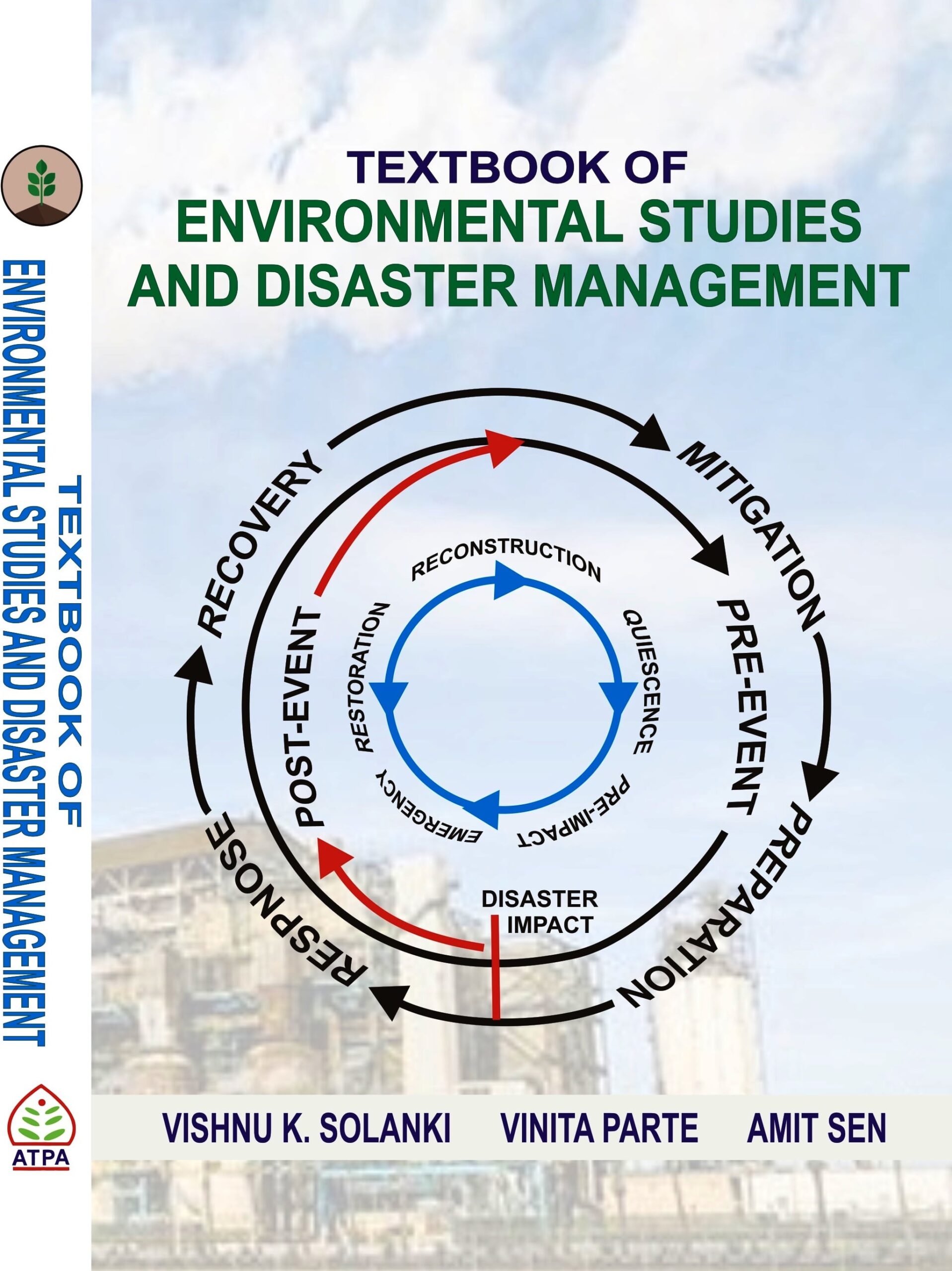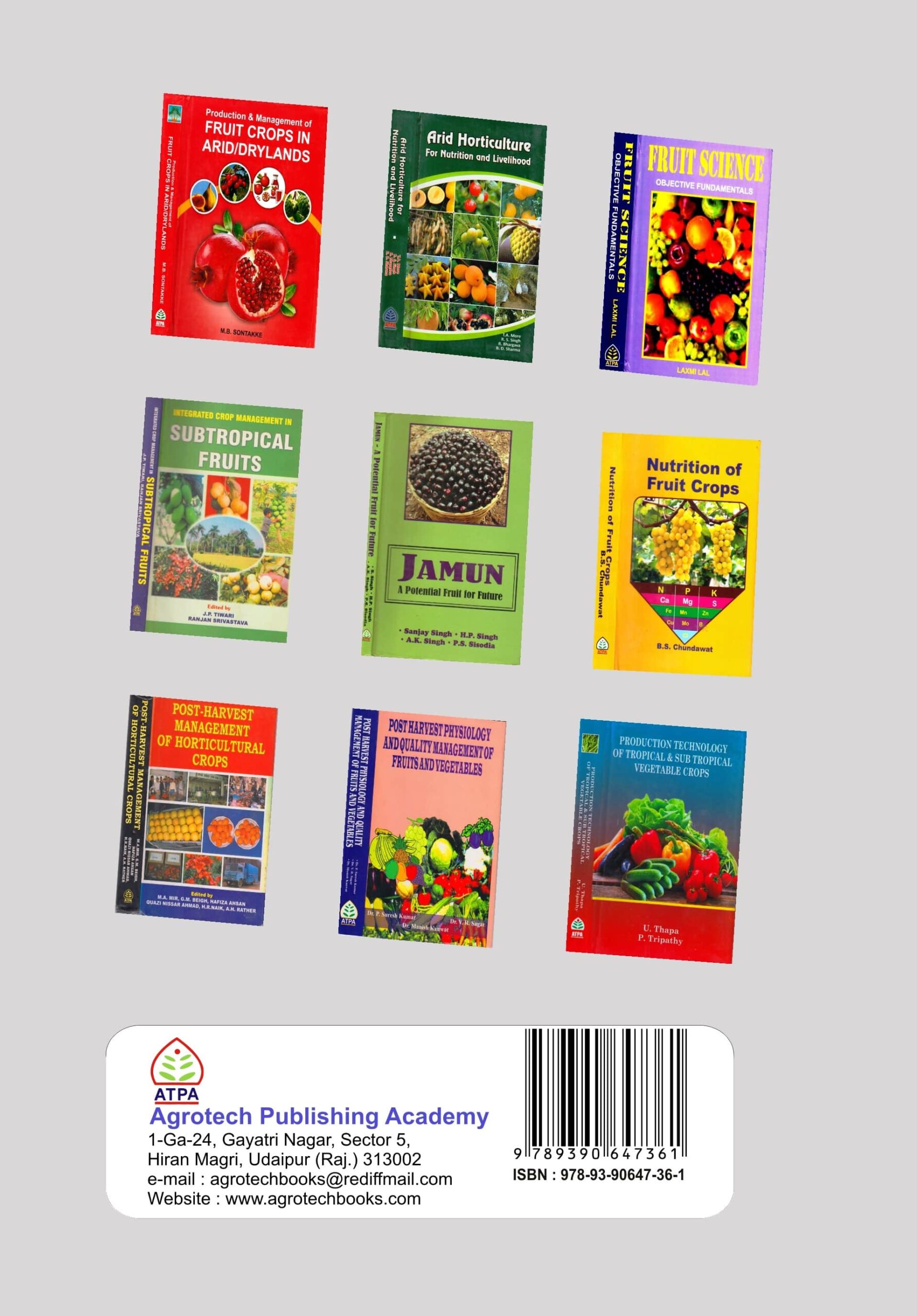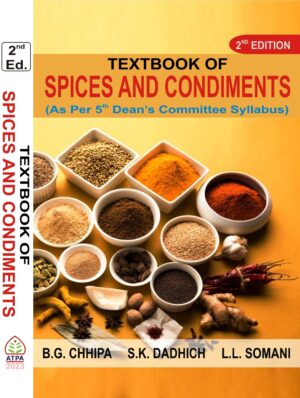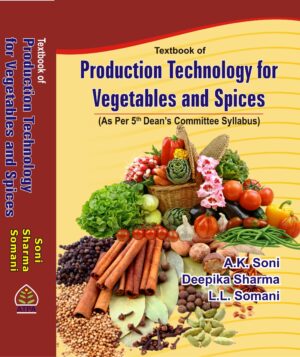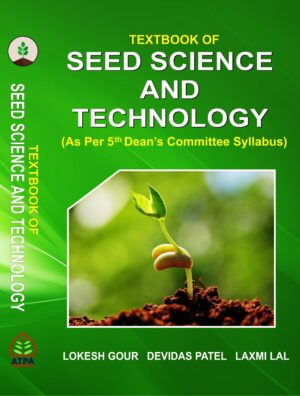TEXTBOOK OF ENVIRONMENTAL STUDIES & DISASTER MANAGEMENT
₹750.00
AUTHORS: VISHNU K. SOLANKI, VINITA PARTE AND AMIT SEN
PUBLISHING YEAR: 2022
ISBN: 9789390647361
© All Rights Reserved
Description
ABOUT THE BOOK
Anthropogenic activities and urbanization has become a serious threat for our environment. It also protect and conserve biodiversity and also control the environment pollutions. It helps to educate people regarding their duties towards environmental protection and environment and human health. It provides basic knowledge and information like climate change, global warming etc. It provides knowledge about natural disasters, Man-made disasters and its management. It has grabbed the attention of scientific community with a challenge to pass the safe environment to the upcoming generation. In this concern, many scientific interventions are taking place along with innovations in academic curriculum also. Its study has become compulsory from school to graduate level with an aim to increase the knowledge and awareness. This book focuses on the prescribed syllabus for graduation covering all the topics.
CONTENT
| Chapter No. | Title | Page |
| PREFACE | 3 | |
| ABOUT THE BOOK | 4 | |
| ABOUT THE AUTHORS | 5 | |
| 1 | INTRODUCTION: Multidisciplinary nature of environmental studies Definition, scope and importance. | 9-21 |
| 2 | NATURAL RESOURCES: Natural Resources: Renewable and non-renewable resources, Natural resources and associated problems; Forest resources, Water resources, Mineral resources, Food resources, Energy resources, Land resources; Role of an individual in conservation of natural resources; Equitable use of resources for sustainable lifestyles. | 22-58 |
| 3 | ECOSYSTEM: Ecosystems: Concept of an ecosystem, Structure and function of an ecosystem, Producers, consumers and decomposers, Energy flow in the ecosystem, Ecological succession, Food chains, food webs and ecological pyramids; Introduction, types, characteristic features, structure and function of the following ecosystem: Forest ecosystem, Grassland ecosystem, Desert ecosystem, Aquatic ecosystems. | 59-77 |
| 4 | BIODIVERSITY AND ITS CONSERVATION: Biodiversity and its conservation: Introduction, definition, genetic, species & ecosystem diversity; Biogeographical classification of India; Value of biodiversity, consumptive use, productive use, social, ethical, aesthetic and option values; Biodiversity at global, National and local levels, India as a mega-diversity nation; Hot-sports of biodiversity; Threats to biodiversity, habitat loss, poaching of wildlife, man-wildlife conflicts; Endangered and endemic species of India; Conservation of biodiversity, In-situ and Ex-situ conservation of biodiversity. | 78-89 |
| 5 | POLLUTION: Environmental Pollution, definition, cause, effects and control measures of Air pollution, Water pollution, Soil pollution, Marine pollution, Noise pollution, Thermal pollution, Nuclear hazards; Solid Waste Management, causes, effects and control measures of urban and industrial wastes; Role of an individual in prevention of pollution. | 90-116 |
| 6 | SOCIAL ISSUES AND THE ENVIRONMENT: Social Issues and the Environment: From Unsustainable to Sustainable development, urban problems related to energy, Water conservation, rainwater harvesting, and watershed management. | 117-126 |
| 7 | ENVIRONMENTAL ETHICS: Environmental ethics: Issues and possible solutions, climate change, global warming, acid rain, ozone layer depletion, nuclear accidents and holocaust; Wasteland reclamation, Consumerism and waste products; Environment Protection Act, Air (Prevention and Control of Pollution) Act, Water (Prevention and control of Pollution) Act, Wildlife Protection Act, Forest Conservation Act; Issues involved in enforcement of environmental legislation, Public awareness. | 127-149 |
| 8 | HUMAN POPULATION AND THE ENVIRONMENT: Human Population and the Environment: population growth, variation among nations, population explosion, Family Welfare Programme; Environment and human health, Human Rights, Value Education, HIV/AIDS, Women and Child Welfare; Role of Information Technology in Environment and human health. | 150-162 |
| 9 | DISASTER MANAGEMENT: Natural Disasters: Meaning and nature of natural disasters, their types and effects, Floods, drought, cyclone, earthquakes, landslides, avalanches, volcanic eruptions, Heat and cold waves, Climatic change, global warming, Sea level rise, ozone depletion. Man Made Disasters: Nuclear disasters, chemical disasters, biological disasters, building fire, coal fire, forest fire, oil fire, air pollution, water pollution, deforestation, industrial waste water pollution, road accidents, rail accidents, air accidents, sea accidents. Disaster Management: Effect to migrate natural disaster at national and global levels, International strategy for disaster reduction, Concept of disaster management, national disaster management framework, financial arrangements, role of NGOs, community based organizations and media, central, state, district and local administration, Armed forces in disaster response, Disaster response, Police and other organizations. | 163-184 |
ABOUT THE AUTHORS
VISHNU K. SOLANKI
Dr. Vishnu K Solanki is presently working as Assistant Professor (Agroforestry) in Department of Forestry at College of Agriculture, JNKVV, Jabalpur, M.P. She has done her B.Sc. (Forestry) from MPUAT, Udaipur, Rajasthan, M.Sc. in Forestry (Agroforestry) and Ph.D. in Forestry (Agroforestry) from Navsari Agricultural University, Navsari, Gujarat. She has also qualified NET examination conducted by ASRB. She is associated with teaching and research. She has published various research papers, popular articles, abstracts etc., presented in various national and international scientific events, and participated in such events. She is a life member of many professional societies. She is guiding many students as a major advisor, co-adviser and member. She holds an experience of Four years of teaching and research.
VINITA PARTE
Vinita Parteis presently workings Assistant Professor in Agronomy at College of Agriculture, Ganjbasoda, JNKVV, Jabalpur, Madhya Pradesh. She has done her B. Sc. (Agriculture) from RVSKVV Gwalior, M.Sc. in Agriculture from RVSKVV Gwalior. She has also qualified NET examination conducted by ASRB and UGC. She has published various research papers, popular articles, abstracts etc. She has presented many papers in International and National conferences/seminars/symposium etc. She is a life member of many professional societies. She holds an experience of Four years of teaching.
AMIT SEN
Amit Sen has qualified M.Sc. Biotechnology from Jiwaji University, Gwalior and NET conducted by ASRB, New Delhi. Currently, he is pursuing Ph.D from Gyan Vihar University, Jaipur. He is expertise in application of Biotechnology in the Environmental Science. He has published book chapters and articles related to phytoremediation, bioremediation, validation of medicinal plant uses and proteomics.
Additional information
| AUTHOR/AUTHORS | AMIT SEN, VINITA PARTE, VISHNU K. SOLANKI |
|---|---|
| PAGES | 184 |
| BINDING | Hard Back |
| PUBLICATION YEAR | 2022 |

